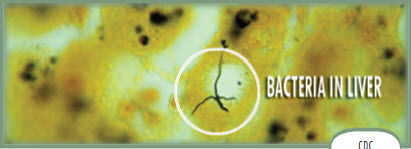Leptospirosis
| Question | Answer |
|---|
| Example |

|
| Can I still use the animal |
Yes - take safety precautions
|
| Commonly infected wildlife |
Rodents, Raccoons, Deer, Beavers
|
| Is this animal infected |
- Infection is considered uncommon
- Most infected animals have no symptoms
|
| Can I get it |
Yes
- Contact with:
- Urine or tissues of infected animals
- Water, soil or vegetation contaminated by infected urine
- Consumption of:
- Food or drinking water contaminated by infected urine
|
| How bad can it get |

Can be fatal if not treated immediately
|
| How can I protect myself and others |
- When handling rodents (including beavers) and raccoons:
- Wear disposable gloves
- Wash your hands afterward
- Clean cuts or wounds with soap and warm water
- Wear boots when wading in water
|
| Symptoms in humans |
- Most people will not have symptoms
- If symptoms do occur, they can include:
- High fever, severe headache, chills, muscle aches and vomiting
- Other symptoms can include:
- Jaundice (yellow skin and eyes)
- Red eyes
- Abdominal pain, diarrhea, rash
- If untreated, symptoms can include:
- Kidney damage, liver failure, breathing problems, headache, stiff neck
- Fatalities are rare
|
| Is it safe for pets |
No
- In severe cases, pets can die from leptospirosis
- Pets can also transfer the bacteria to humans
- Talk to your veterinarian about vaccines
|
| What causes it |
- Bacteria called Leptospira
|


